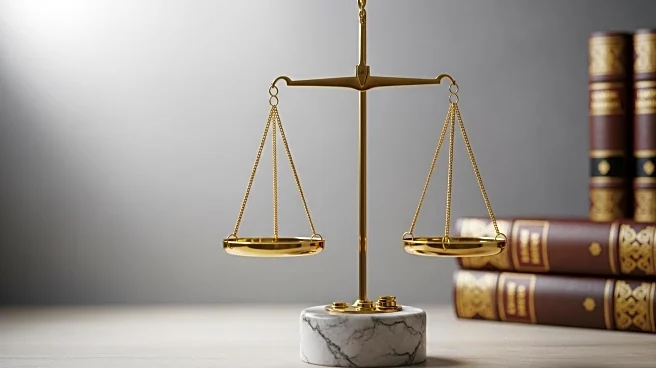What's Happening?
The process of nominating justices to the U.S. Supreme Court is a significant constitutional responsibility of the President, requiring the 'advice and consent of the Senate.' Historically, 165 nominations have been submitted, resulting in 128 confirmations. The American Bar Association evaluates nominees, providing rankings of qualified, well-qualified, or not qualified. Notably, Franklin D. Roosevelt appointed nine justices, the most by any president since George Washington. The timeline of nominations includes key events such as the confirmation of Sonia Sotomayor as the first Hispanic justice in 2009 and the contentious confirmation of Brett Kavanaugh in 2018. The process has evolved over time, with televised hearings beginning in 1981 and the first Democratic president since 1967, Bill Clinton, appointing justices in the 1990s.
Why It's Important?
Supreme Court nominations are crucial as they shape the judicial landscape of the United States, influencing major legal and constitutional decisions. The justices' interpretations of the law can affect public policy and societal norms for generations. The confirmation process often reflects the political climate, with contentious nominations highlighting partisan divides. For instance, the narrow confirmation of Brett Kavanaugh underscored deep political tensions. The court's composition can impact rulings on critical issues such as civil rights, healthcare, and environmental regulations, affecting millions of Americans. Thus, the nomination and confirmation process is not only a legal procedure but also a reflection of broader political and social dynamics.
What's Next?
Future Supreme Court nominations will likely continue to be pivotal events, with potential retirements or vacancies offering opportunities for the sitting president to influence the court's ideological balance. The process will remain a focal point of political strategy, with both parties aiming to secure a majority that aligns with their legal philosophies. Upcoming nominations could provoke significant public and political discourse, especially on contentious issues like abortion rights, gun control, and executive power. Stakeholders, including political leaders, advocacy groups, and the public, will closely monitor these developments, anticipating their long-term implications on American jurisprudence.
Beyond the Headlines
The Supreme Court's role extends beyond immediate legal decisions, as its interpretations of the Constitution can lead to shifts in societal values and norms. The court's decisions often set precedents that influence lower courts and legislative actions. Additionally, the nomination process itself can serve as a barometer for the nation's political health, revealing the extent of partisan polarization. Ethical considerations, such as the influence of political ideology on judicial impartiality, remain a topic of debate. As the court continues to address complex legal issues, its composition and the integrity of the nomination process will remain under scrutiny.










